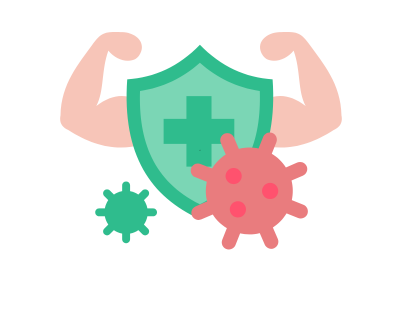The health benefits of cauliflower are vast and transformative, making this humble vegetable a must-have in every diet. Research highlights that this versatile cruciferous vegetable is linked to several friendly consequences for mankind.
In this blog, we will explore the incredible health benefits of cauliflower, explaining why it’s time to give this cruciferous vegetable the spotlight it deserves.
Health Benefits of Cauliflower – Packed with Essential Nutrients
Cauliflower is a nutrient-dense vegetable. It is low in calories but packed with essential vitamins and minerals. You will find high amounts of vitamin C, which boosts your immune system and helps your skin glow. It also contains vitamin K, which is crucial for bone health and blood clotting. Folate, another nutrient in cauliflower, supports cell function and growth and helps in DNA synthesis. It also contains potassium, magnesium, and small amounts of protein, making it a well-rounded addition to your meals
Health Benefits of Eating Cauliflower
Cauliflower’s mild flavor and adaptability make it a favorite in kitchens worldwide, but its true value lies in its incredible health benefits.
Let’s explore the ways this cruciferous vegetable contributes to a healthier lifestyle.
Supports Digestive Health:

Fiber is one of cauliflower’s standout features. It helps keep your digestive system running smoothly by adding bulk to your stool. This not only prevents constipation but also supports healthy gut bacteria. A fiber-rich diet can even reduce the risk of digestive problems like inflammation and certain bowel diseases. Eating cauliflower regularly is a simple way to care for your gut.
Great for Weight Management:

If you are watching your weight, cauliflower is your friend. It is low in calories and carbs but high in fiber, which keeps you feeling full for longer. Many people use cauliflower as a healthy substitute for high-calorie foods like rice, mashed potatoes, or even pizza crust. This means you can enjoy delicious meals while staying on track with your health goals.
Loaded with Antioxidants:

Cauliflower is a powerhouse of antioxidants, especially sulforaphane. Antioxidants protect your body from harmful free radicals that can cause cell damage. Sulforaphane is particularly effective in reducing inflammation and lowering the risk of chronic diseases like heart disease and cancer. Including cauliflower in your diet is like giving your body an extra shield against damage.
Boosts Heart Health:

The fiber, antioxidants, and potassium in cauliflower make it a heart-friendly food. Fiber helps lower cholesterol levels, while potassium helps regulate blood pressure. The antioxidants in cauliflower protect your blood vessels from damage, reducing the risk of heart-related issues. By eating cauliflower, you’re giving your heart some much-needed love.
Helps Manage Blood Sugar:

One of the health benefits of cauliflower is regulating blood sugar levels. Cauliflower is an excellent choice for people managing diabetes or watching their blood sugar levels. Its fiber slows down sugar absorption, preventing sudden spikes in blood sugar. Sulforaphane, an antioxidant in cauliflower, has also been shown to improve insulin sensitivity. This makes cauliflower a smart addition to a diabetes-friendly diet.
Reduces Inflammation:

Chronic inflammation can lead to serious health problems, like arthritis and certain cancers. The plant compounds in cauliflower, such as glucosinolates and isothiocyanates, have powerful anti-inflammatory properties. Regularly eating cauliflower can help reduce inflammation and protect your body in the long term.
Strengthens Immunity:

Cauliflower’s high vitamin C content plays a big role in boosting your immune system. It helps your body fight infections and heal wounds faster. Plus, vitamin C acts as an antioxidant, protecting your cells from damage. Including cauliflower in your diet can help keep your immune system strong year-round.
Cauliflower – A Versatile Vegetable for Any Diet:
One of the health benefits of cauliflower is that it can be used by various age groups as it is has versatility. It works for almost any diet, whether you are vegan, keto, or gluten-free. You can roast it, mash it, turn it into rice, or even use it as a base for pizza crust. Its mild flavor makes it a great addition to soups, stews, and salads. It’s easy to add this superfood to your meals.
Why Cauliflower Deserves a Place in Your Diet?
The answer is simple, because there are 7 proven health benefits of cauliflower. Cauliflower is known as a health champion. It provides many health benefits along with solving several health issues. Its benefits are backed by science. Plus, it is versatile, tasty, and fits seamlessly into almost any recipe. So, start adding cauliflower to your meals today, and enjoy its incredible impact on your health.
Cauliflower supports your health in countless ways. From improving digestion and heart health to aiding weight management and reducing inflammation, this vegetable deserves a spot in your diet.
So, the next time you plan your meals, don’t forget to add this vegetable to your plate it’s your body’s ally for a healthier tomorrow.
Frequently Asked Questions:
Can cauliflower help with weight loss?
Yes, cauliflower is low in calories and carbs but high in fiber, which keeps you full for longer. It’s an excellent substitute for high-calorie foods, making it a weight-loss-friendly option.
Is it safe to eat cauliflower every day?
Eating cauliflower daily is generally safe and healthy. However, excessive consumption might cause bloating or gas due to its high fiber content. Moderation is necessary.
How does cauliflower benefit heart health?
Cauliflower contains fiber, potassium, and antioxidants, which help lower cholesterol, regulate blood pressure, and protect blood vessels from damage. These factors promote better heart health.
Can people with diabetes eat cauliflower?
Yes, cauliflower is a great choice for people with diabetes. It has a low glycemic index and helps regulate blood sugar levels. Its antioxidants may also improve insulin sensitivity.
What’s the best way to cook cauliflower to retain its nutrients?
Steaming is the best method to preserve the nutrients in cauliflower. Avoid boiling for too long, as it can lead to nutrient loss. Roasting and stir-frying are also healthy options.
Are there any negatives to eating cauliflower?
While cauliflower is highly nutritious, some people may experience bloating or gas due to its fiber content and natural compounds called raffinose, which can be harder to digest. Additionally, those with thyroid issues might need to moderate their intake of raw cauliflower as it contains goitrogens, which can interfere with thyroid hormone production if consumed in large amounts.
Which is healthier, broccoli or cauliflower?
Both vegetables are incredibly healthy, but they have slightly different benefits. Broccoli has more vitamin C, vitamin K, and calcium, while cauliflower is lower in calories and often used as a versatile substitute in low-carb diets.
Is cauliflower better for you cooked or raw?
Both cooked and raw cauliflower are healthy, but the choice depends on your goal. Eating it raw preserves its vitamin C content and certain enzymes, like myrosinase, which may have anti-cancer properties. Cooking, especially steaming, enhances its antioxidant properties and makes it easier to digest. Avoid overcooking, as this can reduce its nutrient content.
Does cauliflower clean your gut?
No, Cauliflower does not clean the gut in a literal sense, it does support gut health and overall detoxification processes. Cauliflower contains fiber and natural compounds that promote a healthy gut. Fiber supports digestion and nourishes beneficial gut bacteria. Its sulforaphane content also has potential detoxifying properties.




